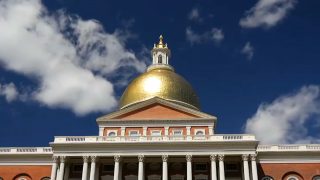
Massachusetts Gov. Maura Healey signed a nearly $58 billion state budget bill Monday that includes a plan for free community college and allows the Massachusetts Lottery to move some of its products online.
The spending plan will also pay for literacy programs for children from age three through third grade, cover the state's free school breakfast and lunch program, and fully fund tax cuts included in the last state budget.
WATCH ANYTIME FOR FREE
>Stream NBC10 Boston news for free, 24/7, wherever you are. |
“Massachusetts today, we are firing on all cylinders,” Healey, a Democrat, said moments after signing the budget. “At the same time, we know that the competition is fierce and our residents faces challenges so we're not resting and we're not taking our foot off the gas.”
The budget sets aside more than $117 million for a free community college program across the state, covering tuition and fees for students. The 15 community colleges in Massachusetts serve more than 90,000 students, about 70% of of whom attend school part time while juggling work and family commitments.
Get updates on what's happening in Boston to your inbox. Sign up for our >News Headlines newsletter.
To be eligible for free tuition, students must be pursuing a degree at a public community college in Massachusetts and complete the Free Application for Federal Student Aid or a state equivalent of the FAFSA form.
Students must also attend school at least part time, not already have a bachelor’s degree, and be a Massachusetts resident.
Students of color make up more than half of the state’s community college population. Fewer than 25% of community college students have annual household incomes above $120,000.
Local
In-depth news coverage of the Greater Boston Area.
The budget would also allow online lottery sales, while raising the age to 21 for anyone buying online lottery products. The spending plan includes a prohibition on predatory advertising to minors.
The goal is to create a new funding source for the state’s early education and care initiatives. A portion of the new revenue collected from online lottery sales — estimated to be $100 million in fiscal year 2025 — would fund grants intended to help the state’s most vulnerable children.
Lottery officials have long pushed to expand into an online market. The neighboring states of New Hampshire and Rhode Island both have online lottery games.
The budget sets aside $170 million to fund the state’s universal school meals program. It also allocates more than $42 million for the Massachusetts Emergency Food Assistance Program, which helps ensure a steady supply of nutritious foods and locally grown produce to a statewide network of more than 894 emergency food providers.
There will be nearly $9 billion left in the state’s rainy day fund.
The budget includes $1.3 billion in revenues generated from a vote-approved surtax of 4% on annual income above $1 million and invests the additional dollars to improve the state’s education and transportation sectors.
The budget funnels 59% of the new funds to education and 41% to transportation.



